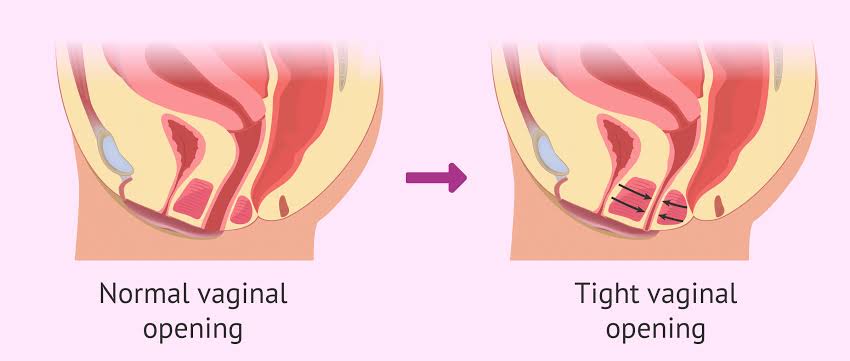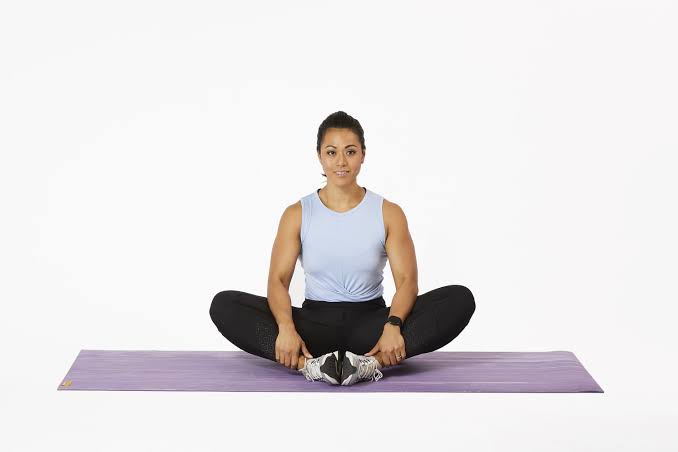This content is for informational and educational purposes only. Always consult a qualified healthcare provider.
Last Updated on June 9, 2024 by Pen Pixel
If you’re struggling with penetration during sex, you might be dealing with vaginismus. And it’s not a fun thing.
Vaginismus happens when the vagina tightens up on its own as soon as you try to put something inside. This can hurt and be distressing. But, there are ways to fix it. It’s a problem that mostly affects women from their late teens to early 30s, but anyone with a vagina can experience it.
Psychologically, it can drain your sex drive and sex life. But it doesn’t stop you from feeling turned on or enjoying other kinds of sexual activities.
📋 Table of Contents
The Key Takeaway.
If you feel muscle cramps or pain that makes sex painful or impossible, it’s okay to talk to your doctor about it. You don’t have to keep dealing with the pain. There are many issues, like vaginismus, that can make sex hurt, but they can be fixed.
Types Of Vaginismus.


- Primary vaginismus: if you’ve never been able to have vagina penetration.
- Secondary vaginismus: if you have been able to have vagina penetration but has become impossible or almost impossible.
After menopause, some women might get vaginismus. This is because the hormone estrogen decreases, which can make the vagina less moist and less stretchy. This change can make sex painful or too hard to do, and for some women, it can cause vaginismus.
How To Know If You Have Vaginismus?
The main sign of vaginismus is that the muscles around the vagina tighten by themselves when you try to insert anything. This can make you feel a burning or sharp pain.
It’s reflex and you have zero control over it. And even if you enjoy penetrative sex, you can still have vaginismus.
But,
It might be an infection. Not vaginismus. So you should totally go to a doctor to have your vagina examined.
What Causes Vaginismus?
- History of sexual assault, harassment, or abuse.
- Painful first penetration.
- Previous vagina tightening surgery.
- Difficult childbirth experience.
- Religious beliefs like believing sex is shameful or wrong.
- Vaginal infections.
- Anxiety or fears about having sex.
- Lack of mental consent to have sex with your partner/issues with your partner.
Will Vaginismus Make Sex Painful?
Yes it can. But usually, only penetration is painful as a result of the involuntary and persistent contraction of your vaginal muscles.
What Exercises Will Kill Vaginismus?
The Child’s Pose.
This pose is good for easing tightness in your back and belly. Start with 5 breaths and work up to 10 when you’re ready.


Start on all fours, like a table, with your hands under your shoulders and knees under your hips. Sit back on your heels and reach your hands forward.
Bend down until your chest touches the floor, and stretch your hands out in front. You can rest your forehead on the floor. If you need more space, move your knees apart.
Take deep breaths in and out for 5 or 10 times. Feel your belly muscles stretch and relax with each breath. For a different stretch, put a pillow behind your knees or under your hips. Keep breathing calmly and think about letting your belly relax and soften.
Arch and Dip Stretch (Cat/Camel Stretch).
This one helps to make your spine more flexible and strengthens your belly muscles.


Start on your hands and knees, keeping your back flat. Breathe in and round your back up towards the ceiling, dropping your head down. This is the Cat pose.
Hold it for a bit, feeling your back stretch. Now, breathe out and let your belly drop down, lifting your head up. This is the Camel pose.
Stay like this for a moment, feeling a gentle pull in your belly. Go back and forth between Cat and Camel, doing this 10-15 times, moving smoothly and breathing with each change.
The Butterfly Pose.
This one is great for making your hips and thighs more flexible.


Sit down with your legs straight out. Put the bottoms of your feet together and pull them close to you.
Hold your feet with your hands. You can hold your toes or ankles, whatever feels comfortable. Let your knees drop to the sides without pushing them. Sit up straight, relax your shoulders, and tighten your belly muscles a little.
Happy Infant (Baby) Pose.
This stretch is good for making your pelvic area more flexible and relaxed. Try it in small steps and increase when you’re ready.


Lie on your back. Lift your legs up, keeping them wider than your hips. Breathe in deeply, filling up your belly and sides. If you can’t hold your feet, use a belt or sheet under your knees for help.
Breathe in and out 5 or 10 times, feeling your belly muscles stretch and relax. Start with 5 breaths and increase to 10 as you get more comfortable.
Low Crouch (Deep Squat).
Start with 5 deep breaths and work up to 10 when you feel up to it. This squat is great for making your muscles work and helping you chill out.


Stand with your feet flat, a bit wider than your hips. Hold onto something like a kitchen counter or chair for balance. Bend your knees and lower your body, like you’re going to sit down, but go as low as you can.
Keep your back straight and chest up. Let your hips relax and go down without holding them up. Breathe in and out deeply 5 or 10 times, feeling your belly muscles stretch and move.
How Will Vaginismus Be Diagnosed?
Sometimes, no clear cause can be found. To diagnose the issue, your doctor will do a physical exam and ask about your medical and sexual history.
Your doctor will likely ask:
- When you noticed it.
- What you think triggers it.
- How much it happens.
Diagnosing and treating vaginismus eventually requires a pelvic exam. Your doctor will do the exam as gently as he/she can. You can help guide their hand or or tool to make penetration easier. You can ask for explanations.
If your doctor naturally doesn’t look for any sign of infection or scarring, you should ask them to. You can also ask for ways to make the exam comfortable for you.
Treatment for Vaginismus.
Psychosexual Therapy.
This is a kind of counseling that helps you learn and change how you think and feel about your body and sex. It gives you details about the muscles that play a role in vaginismus. This knowledge can help you understand how your body functions and reacts.
Relaxation Methods.
Mindfulness, breathing, and gentle touching exercises are methods that can help you learn to relax the muscles around the vagina.
Pelvic Floor Exercises.
These are exercises where you squeeze and then relax the muscles around the vagina. This can help you get better control over these muscles.
You’ll also try exercises that help you relax better during sex and boosts your sex drive.
Vaginal Dilators.
Usually penis-shaped, will be given to you in different sizes to help you get used to having something in your vagina. You’re to start with the smallest sizes and gradually use bigger ones. This will help your vaginal muscles stretch and become more flexible. After finishing the treatment with all the dilators, you and your partner can try having intercourse again.
If you’re in a relationship, you can choose to involve your partner. Note that, if your vaginismus is caused by a mental reason, the physical treatments might not work for you.
Living with Vaginismus.
Sexual problems can really hurt a relationship. It’s important to deal with them early and get help to keep your relationship or marriage strong.
You shouldn’t feel bad about it. Just talking to your partner about how you feel and what worries you about sex can help you relax.
Many people get the help they need. You can too. You can try using lubrication or different sexual positions can help make sexual intercourse more comfortable.
How Can Vaginismus Be Prevented?
Since there’s no specific reason for vaginismus, there is also no known way to prevent it.
What Questions Should I Ask My Doctor If Penetration Is Painful?
- Why is penetration painful for me?
- What is the best treatment for me?
- How can I make sex more pleasurable and accessible?
- Will the pain get better or worse in the long run?
- Will mental health support help me?

